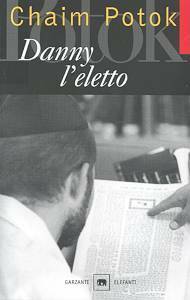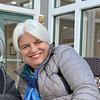Take a photo of a barcode or cover
While the writing is very simple, really really simple, the story is exceptionally well told. An emotional book that exposes the complexity of the Jewish community of the 1940s of in Brooklyn.
I need to reread this sometime.
I found out about this book in high school, when we had to choose out of a few books to read for English Lit. I opted for another book than this one, but at some point, my teacher had a bunch of old books that he wanted to get rid of and I basically volunteered and brought a lot of them home with me, including this one.
The first chapter is, in my opinion, the 'worst'. Mainly because I'm not a sports person. But really, the rest of the book is just so good. It's very inspiring and it really made an impression on me.
I've now written this review more than a year later (oops), because I really want more people to know about it. It's listed as a classic - I totally agree - and therefore also deserves way more readers.
I found out about this book in high school, when we had to choose out of a few books to read for English Lit. I opted for another book than this one, but at some point, my teacher had a bunch of old books that he wanted to get rid of and I basically volunteered and brought a lot of them home with me, including this one.
The first chapter is, in my opinion, the 'worst'. Mainly because I'm not a sports person. But really, the rest of the book is just so good. It's very inspiring and it really made an impression on me.
I've now written this review more than a year later (oops), because I really want more people to know about it. It's listed as a classic - I totally agree - and therefore also deserves way more readers.
Good story, not an easy read. Lots of history and need to know background knowledge.
I loved this. This was the first book that I ever read that had Jewish rep in it. I loved this. I read it in middle school.
Holy shit.
This book was an emotional tornado, constantly going from the most beautiful to the most heartbreaking moments, but my God was this book written beautifully.
The book went through various complicated themes - organised religion (obviously in this case Judaism), different ways of being raised, relationships, and way more - all in great detail and all treated with just about an equal amount of importance. And all written in a beautifully captivating way.
One this that I also loved was how accessible this book was for people, like me, who barely know anything about Judaism at all. All habits, books, terms and whatever else was explained in great detail, which made the book much easier to go through.
Overall a beautiful and emotional book.
This book was an emotional tornado, constantly going from the most beautiful to the most heartbreaking moments, but my God was this book written beautifully.
The book went through various complicated themes - organised religion (obviously in this case Judaism), different ways of being raised, relationships, and way more - all in great detail and all treated with just about an equal amount of importance. And all written in a beautifully captivating way.
One this that I also loved was how accessible this book was for people, like me, who barely know anything about Judaism at all. All habits, books, terms and whatever else was explained in great detail, which made the book much easier to go through.
Overall a beautiful and emotional book.
This was an astounding book. I am not sure that I would have been able to get through it if I hadn't listened to the book because there were some very detailed parts about how to dissect and analyze the Talmud. The theme, however, was how people reconcile their culture/beliefs throughout the generations and with people with differing beliefs. It speaks volumes to me that although both of the main characters were Jewish, they came from very different sects within the religion. The main characters were boys who start a friendship. Their friendship provides the backdrop for describing some Jewish history within New York and the events of the World War II. The book was compelling because the characters were intense and heartfelt and the subject is timeless. How do you make people stay within a cultural structure when they want to branch out? Finally the author is able to weave in the heartbreak and necessity of assimilation throughout the book within the context of Judaism in the 1940's.
If I was actually into literature in high school, perhaps I would have taken a class where this book was assigned reading. Alas, 20+ years later, I finally discovered this wonderful story.
I loved the characters, but the relationships between them really made The Chosen a particularly can't-put-it-down book. It was a great story of friendship despite differences, interwoven with historical events that shape the friendship. I also learned a bit about Hasidism.
A recommended quick, quality read.
I loved the characters, but the relationships between them really made The Chosen a particularly can't-put-it-down book. It was a great story of friendship despite differences, interwoven with historical events that shape the friendship. I also learned a bit about Hasidism.
A recommended quick, quality read.
I first had the chance to read a book by Chaim Potok when I was choosing the book I would read for my 10th grade term paper on American literature. My Name is Asher Lev was on the list, and I seriously considered choosing it, and it was at that time that I first heard of The Chosen and the Promise. I ended up selecting another excellent Jewish American author, Bernard Malamud, and his work, The Fixer. I loved that book, and it really expanded my horizons on the sort of book that I could enjoy reading. It helped teach me that it is an enjoyable reading experience to learn about a way of life that you previously have had very little experience with. The Chosen was definitely a re-affirmation of this.
Growing up as a serious Christian (for example, I had to finish reading the Bible through before I could get my driver’s license—it took me three years but I did it), I always have taken Judaism seriously and had an appreciation for it. This has also led to a life-long interest in it. I took a class in college called World Religions Middle East and read a Jacob Neusner book for it (I believe it was The Way of the Torah) and got a lot out of that. During my semester in Egypt, I took a class on the Israeli-Palestinian Conflict. In graduate school studying Middle Eastern History, I took a History of Modern Judaism/Israel class with a visiting Israeli professor, and also got a lot out of that class. That class was also interesting because of the diversity of students in the class—many devout Jews but also many other types of people. That class really taught me a lot about the history of Zionism. Since I have been teaching Ancient History myself to my 6th graders, I teach a unit on Ancient Israel and Judaism to them every year, and every year, I am shocked at how little my students know, even though most have grown up going to church. In my 7th grade Medieval World class, I teach them about the Jews in Europe during the Middle Ages and the origins of modern Anti-Semitism. Then of course in US History in 8th grade, I teach them about the Holocaust, and most years for the DC Trip, we go to the Holocaust Museum, so I have probably been to that museum 4 or 5 times in my life now.
I realize this is a lot of backstory for my review of The Chosen, but I bring it all up to say that I have came into reading this book with a lot of background that helped me appreciate it fully. I had little to no in-depth knowledge about Hasidism, and that was the part that was the re-affirmation of my appreciation of reading books that take you into a cultural world you have little to no experience of previously. My father bought it for me, which was what finally spurred me on to read it. It was good enough that I plan to go right on quickly and read The Promise, and I don’t often go right on to the next book in a series because there are so many good books out there to read.
This book also was timely because I have been chatting with my wife a lot recently about her listening through the Bible Project’s podcasts. Sometimes, the depth with which Bible scholarship and theology descends annoys me, and I think The Chosen gave me a term for what I think it can (but certainly does not always) descend into—pilpul. This book brings up significant questions about what exactly is the purpose and/or value of studying scripture (I use the broad term on purpose). For some, it is a means to an end. For some, it is the end in and of itself. For some, the text really is the logos. For others, only the Messiah could be the logos. I only wish Potok had actually incorporated the actual texts that were being debated rather than just saying that a certain passage from Talmud was being discussed by the characters. There is power in knowing the passage, but I wonder if Potok just didn’t want to offend anyone, so left it out.
This book also brings up the important question of intercession and/or substitutionary suffering. Can any one person truly bear the burdens of others? Do you have to know them personally to do this, or can you somehow do this across time and space by some God-given power?
More than anything else, this book is really about father-son relationships. It very much transcends anything about Judaism. And that is why I think the book has remained so powerful, as it was for me with my own son now. It also captures an essential space and moment in time in the history of modern Judaism—Brooklyn, NY before and after World War II. The Holocaust and the creation of the state of Israel are the two most significant events to happen to Judaism in the last two thousand years, so the chance to sort of be a fly on the wall as two Jewish families experienced these and reacted to them in very different ways was incredibly illuminating. I already knew, of course, that many of the most Orthodox or Hasidic Jews have always opposed the state of Israel, but it was still fascinating to read about this.
I really don’t want to give away too much about the story because there are elements of “reveals” in the story, but ultimately, this book is about what makes us human and how our faith in God (or lack thereof) can define so much of how we live our lives. My only other quibble with the book is that it varied widely from a minute by minute account in certain sections to months of time passing with hardly any description. The writing and story were so good, I didn’t want to gloss over those sections. But I understand it because certain historical and character-driven elements of the story had to happen for the rest of the story to progress along with it.
Bravo, Potok.
One final, and I hope not too political thought. The word “diversity” is thrown around a lot these days. I wonder if the “diversity” that many people mean today actually has room left for devout members of various faiths—those who, like the Hasidim, might even be deemed fanatics. Are people just paying lip-service to the idea of diversity? Or do they really mean it? If they really mean it, a book like this is a must read. Because as Reuven’s father reminds us, there really should not be boundaries that divide friendships. How else are we going to get along with each other in our crazy mixed up society if we don’t actually get to know each other first? I worry about this a lot in the America that we live in today.
Growing up as a serious Christian (for example, I had to finish reading the Bible through before I could get my driver’s license—it took me three years but I did it), I always have taken Judaism seriously and had an appreciation for it. This has also led to a life-long interest in it. I took a class in college called World Religions Middle East and read a Jacob Neusner book for it (I believe it was The Way of the Torah) and got a lot out of that. During my semester in Egypt, I took a class on the Israeli-Palestinian Conflict. In graduate school studying Middle Eastern History, I took a History of Modern Judaism/Israel class with a visiting Israeli professor, and also got a lot out of that class. That class was also interesting because of the diversity of students in the class—many devout Jews but also many other types of people. That class really taught me a lot about the history of Zionism. Since I have been teaching Ancient History myself to my 6th graders, I teach a unit on Ancient Israel and Judaism to them every year, and every year, I am shocked at how little my students know, even though most have grown up going to church. In my 7th grade Medieval World class, I teach them about the Jews in Europe during the Middle Ages and the origins of modern Anti-Semitism. Then of course in US History in 8th grade, I teach them about the Holocaust, and most years for the DC Trip, we go to the Holocaust Museum, so I have probably been to that museum 4 or 5 times in my life now.
I realize this is a lot of backstory for my review of The Chosen, but I bring it all up to say that I have came into reading this book with a lot of background that helped me appreciate it fully. I had little to no in-depth knowledge about Hasidism, and that was the part that was the re-affirmation of my appreciation of reading books that take you into a cultural world you have little to no experience of previously. My father bought it for me, which was what finally spurred me on to read it. It was good enough that I plan to go right on quickly and read The Promise, and I don’t often go right on to the next book in a series because there are so many good books out there to read.
This book also was timely because I have been chatting with my wife a lot recently about her listening through the Bible Project’s podcasts. Sometimes, the depth with which Bible scholarship and theology descends annoys me, and I think The Chosen gave me a term for what I think it can (but certainly does not always) descend into—pilpul. This book brings up significant questions about what exactly is the purpose and/or value of studying scripture (I use the broad term on purpose). For some, it is a means to an end. For some, it is the end in and of itself. For some, the text really is the logos. For others, only the Messiah could be the logos. I only wish Potok had actually incorporated the actual texts that were being debated rather than just saying that a certain passage from Talmud was being discussed by the characters. There is power in knowing the passage, but I wonder if Potok just didn’t want to offend anyone, so left it out.
This book also brings up the important question of intercession and/or substitutionary suffering. Can any one person truly bear the burdens of others? Do you have to know them personally to do this, or can you somehow do this across time and space by some God-given power?
More than anything else, this book is really about father-son relationships. It very much transcends anything about Judaism. And that is why I think the book has remained so powerful, as it was for me with my own son now. It also captures an essential space and moment in time in the history of modern Judaism—Brooklyn, NY before and after World War II. The Holocaust and the creation of the state of Israel are the two most significant events to happen to Judaism in the last two thousand years, so the chance to sort of be a fly on the wall as two Jewish families experienced these and reacted to them in very different ways was incredibly illuminating. I already knew, of course, that many of the most Orthodox or Hasidic Jews have always opposed the state of Israel, but it was still fascinating to read about this.
I really don’t want to give away too much about the story because there are elements of “reveals” in the story, but ultimately, this book is about what makes us human and how our faith in God (or lack thereof) can define so much of how we live our lives. My only other quibble with the book is that it varied widely from a minute by minute account in certain sections to months of time passing with hardly any description. The writing and story were so good, I didn’t want to gloss over those sections. But I understand it because certain historical and character-driven elements of the story had to happen for the rest of the story to progress along with it.
Bravo, Potok.
One final, and I hope not too political thought. The word “diversity” is thrown around a lot these days. I wonder if the “diversity” that many people mean today actually has room left for devout members of various faiths—those who, like the Hasidim, might even be deemed fanatics. Are people just paying lip-service to the idea of diversity? Or do they really mean it? If they really mean it, a book like this is a must read. Because as Reuven’s father reminds us, there really should not be boundaries that divide friendships. How else are we going to get along with each other in our crazy mixed up society if we don’t actually get to know each other first? I worry about this a lot in the America that we live in today.
A reread, because I know I read this sometime 35-45 years ago. Chaim Potok could write! I greatly enjoyed the story of the two boys going from teens to early 20s, and the contrast between the Hassidic father and the modern Orthodox father in c. 1944-1949. It was also interesting to hear the description of those two world from that time by an author who lived in them.
Great book!
Great book!





